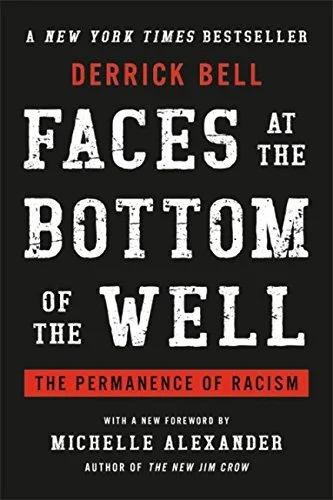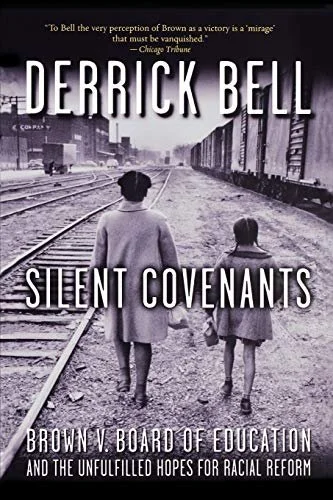Derrick Bell
Faces at the Bottom of the Well: The Permanence of Racism
[From Amazon.com]
The groundbreaking, "eerily prophetic, almost haunting" work on American racism and the struggle for racial justice (Michelle Alexander, author of The New Jim Crow).
In Faces at the Bottom of the Well, civil rights activist and legal scholar Derrick Bell uses allegory and historical example—including the classic story "The Space Traders"—to argue that racism is an integral and permanent part of American society. African American struggles for equality are doomed to fail, he writes, so long as the majority of whites do not see their own well-being threatened by the status quo. Bell calls on African Americans to face up to this unhappy truth and abandon a misplaced faith in inevitable progress. Only then will blacks, and those whites who join with them, be in a position to create viable strategies to alleviate the burdens of racism.
Now with a new foreword by Michelle Alexander, author of The New Jim Crow, this classic book was a pioneering contribution to critical race theory scholarship, and it remains urgent and essential reading on the problem of racism in America.
Silent Covenants: Brown v. Board of Education and the Unfulfilled Hopes for Racial Reform
[From Amazon.com]
When the landmark Supreme Court case of Brown vs. Board of Education was handed down in 1954, many civil rights advocates believed that the decision, which declared public school segregation unconstitutional, would become the Holy Grail of racial justice. Fifty years later, despite its legal irrelevance and the racially separate and educationally ineffective state of public schooling for most black children, Brown is still viewed by many as the perfect precedent.
Here, Derrick Bell shatters the shining image of this celebrated ruling. He notes that, despite the onerous burdens of segregation, many black schools functioned well and racial bigotry had not rendered blacks a damaged race. He maintains that, given what we now know about the pervasive nature of racism, the Court should have determined instead to rigorously enforce the "equal" component of the "separate but equal" standard. Racial policy, Bell maintains, is made through silent covenants--unspoken convergences of interest and involuntary sacrifices of rights--that ensure that policies conform to priorities set by policy-makers. Blacks and whites are the fortuitous winners or losers in these unspoken agreements. The experience with Brown, Bell urges, should teach us that meaningful progress in the quest for racial justice requires more than the assertion of harms. Strategies must recognize and utilize the interest-convergence factors that strongly influence racial policy decisions.
In Silent Covenants, Bell condenses more than four decades of thought and action into a powerful and eye-opening book.
Curriculum Details | Estimated Length - 10 Weeks
10 Sections | 58 Multiple-Choice Questions | 28 Critical Consciousness Choices | 10 Calls to Action | 10 Cycle Summaries


